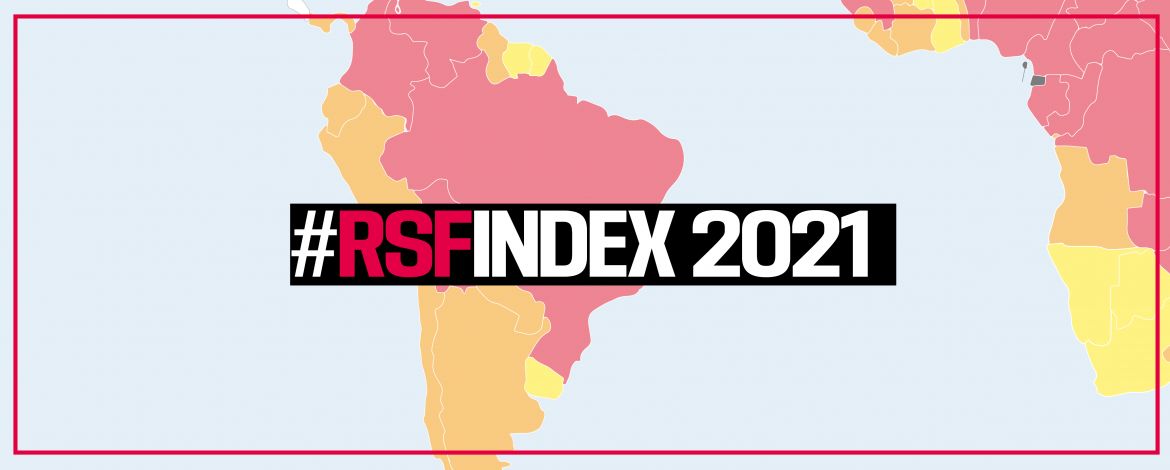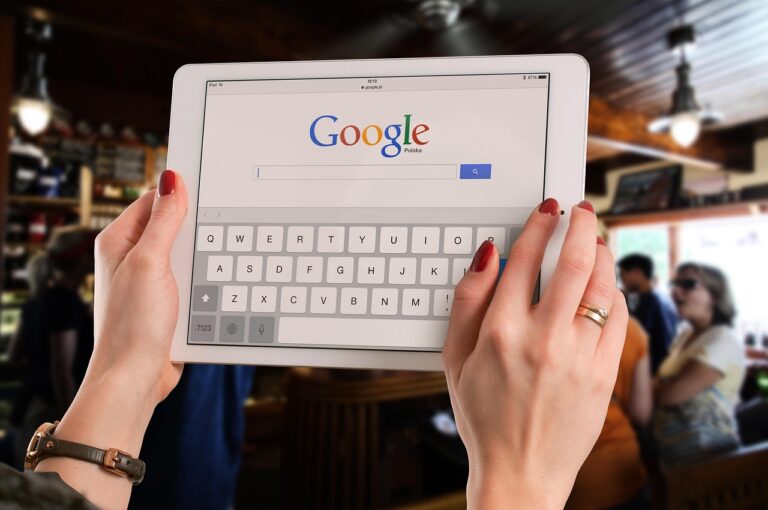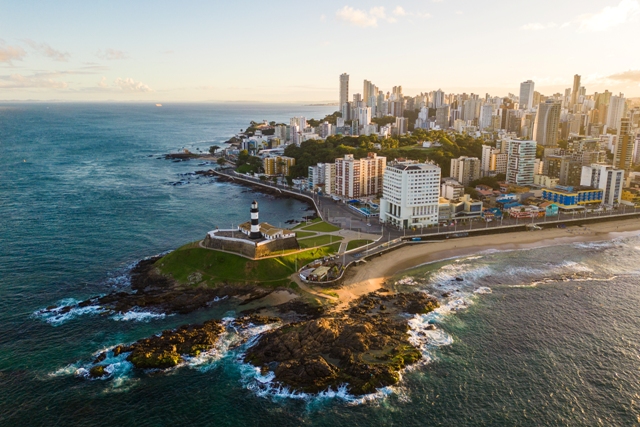The 2021 World Press Freedom Index, compiled by Reporters Without Borders (RSF) and issued in April 2021, shows that journalism, the main vaccine against disinformation, is totally blocked or seriously impeded in 73 countries and constrained in 59 others, which together represent 73% of the countries evaluated.
These countries are classified as having “very bad,” “bad” or “problematic” environments for press freedom, and are identified accordingly in black, red or orange on the World Press Freedom map. Latin America has registered the biggest deterioration in its overall press freedom violations score (+2,5%).

The Index data reflect a dramatic deterioration in people’s access to information and an increase in obstacles to news coverage. The coronavirus pandemic has been used as grounds to block journalists’ access to information sources and reporting in the field. Will this access be restored when the pandemic is over? The data shows that journalists are finding it increasingly hard to investigate and report sensitive stories, especially in Asia, the Middle East and Europe.
The 2021 Edelman Trust barometer reveals a disturbing level of public mistrust of journalists, with 59% of respondents in 28 countries saying that journalists deliberately try to mislead the public by reporting information they know to be false. In reality, journalistic pluralism and rigorous reporting serve to combat disinformation and “infodemics”, including false and misleading information. “Journalism is the best vaccine against disinformation,” RSF secretary-general Christophe Deloire said.
“Unfortunately, its production and distribution are too often blocked by political, economic, technological and, sometimes, even cultural factors. In response to the virality of disinformation across borders, on digital platforms and via social media, journalism provides the most effective means of ensuring that public debate is based on a diverse range of established facts.” – Christophe Deloire
For example, President Jair Bolsonaro of Brazil (down 4 at 111th) and President Nicolás Maduro of Venezuela (down 1 at 148th) promoted medically unproven Covid-19 remedies. Their false claims were debunked by investigative journalists at media outlets such as Brazil’s Agência Pública and in-depth reporting by Venezuela’s few remaining independent publications. In Iran (down 1 at 174th), the authorities tightened their control over news coverage and stepped up trials of journalists in order to weaken the media’s ability to scrutinise the country’s Covid-19 death toll.
As a result of falling four places, Brazil joined the countries coloured red, indicating that the press freedom situation in the country is classified as “bad”. The vilification and orchestrated public humiliation of journalists have become trademarks of President Bolsonaro, along with his family and closest allies. Brazil shares the “bad” classification with India (142nd), Mexico (143rd) and Russia (down 1 at 150th), which deployed its repressive apparatus to limit media coverage of protests in support of Kremlin opponent, Alexei Navalny.


Situation in Latin America
With a few exceptions, the coronavirus crisis has exacerbated an already complex and hostile environment for journalists in Latin America. The pandemic has fuelled censorship and reporters have had major problems finding out how the region’s governments have handled the public health crisis.
These constraints have been reflected in a spectacular worsening in the indicator that measures how hard it is for journalists to access state-held information.
In Brazil (down 4 at 111th), access to official pandemic figures was complicated by a lack of transparency on the part of the government led by President Jair Bolsonaro, who has tried by every means possible tominimise the scale of the crisis, creating a great deal of tension between authorities and national media (see box below).

In El Salvador (down 8 at 82nd), one of the 2021 Index’s biggest falls, coverage of the pandemic wasseriously hampered by police seizures of journalistic material, denial of access to public spaces, a lack of transparent access to state-held information, presidential aides refusing to answer pandemic-related questions at press conferences, and a ban on interviews with officials about the pandemic.
Similarly obstructive practices were seen in Guatemala (116th), where President Alejandro Giammattei said he would like to “put the media in quarantine,” and in Ecuador (up 2 at 96th).
Coverage of the pandemic was made particularly difficult by the attitude of denial adopted by some authoritarian leaders, including Daniel Ortega in Nicaragua (down 4 at 121st), Juan Orlando Hernández in Honduras (down 3 at 151st) and Nicolás Maduro in Venezuela (down 1 at 148th).
They used the shockwave caused by the crisis to reinforce their censorship arsenal and make it even harder for independent media to operate. Journalists were publicly accused of exaggerating the gravity of the health crisis and spreading panic.
Those who dared question the authorities’ handling of the pandemic were arrested, accused of “disinformation terrorism” and in some cases jailed. They included Venezuelan freelancerDarvinson Rojas when he simply questioned the credibility of the government’s figures in a tweet.
The reporting environment is becoming increasingly toxic in most of Latin America. Mistrust of the press is encouraged by the increasingly virulent anti-media rhetoric used by politicians. Journalists are branded as “enemies of the people” in Brazil and El Salvador and even more in Nicaragua and Venezuela, where the independent media are close to death. Cuba (171st) continues to fester near the bottom of the Index, with the constitution still banning privately-owned media, resulting in independent media outlets having no legal recognition and only managing to exist online. Mexico (143rd) is still one of the world’s deadliest countries for the media and President Andrés Manuel López Obrador continues to vilify journalists at his morning press conferences if they publish stories that are not to his liking.
Independent Media

With legislation that affords them little protection and an economic crisis resulting from the pandemic, independent media are facing huge challenges and need to restore public trust in quality journalism.
Despite the difficulties of this environment, journalistic reporting succeeded in countering the false information that some Latin American leaders peddled about the pandemic’s origins and how to address it. Venezuela’s President Nicolás Maduro and Brazil’s Jair Bolsonaro used social media and official campaigns to promote remedies for Covid-19 (Carvativir and Chloroquine) whose efficacy has never been demonstrated in medical research.
In-depth investigative reporting by Agência Pública in Brazil and by El Estímulo and Efecto Cocuyo in Venezuela, where they are among the few remaining independent publications, pointed out the dangers that these campaigns pose to the public and, implicitly, the importance of reliable journalism in combatting the pandemic.
Read also
https://mediatalks.com.br/en/2021/04/24/reuters-institute-report-trust-in-news/












